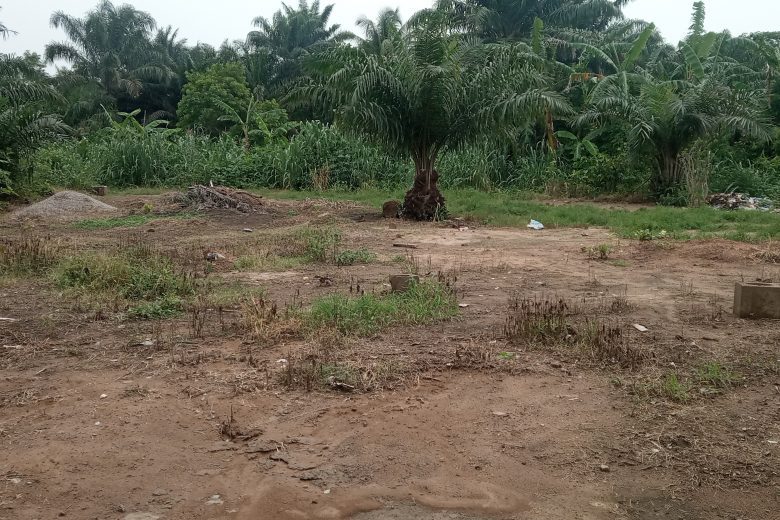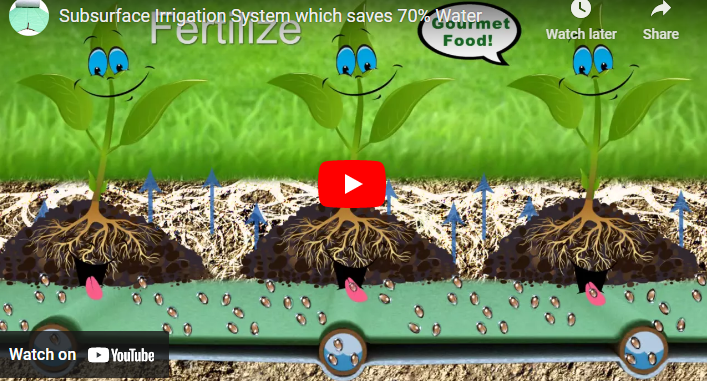Looking to explore the remarkable irrigation schemes in South Africa? Get ready to delve into a diverse range of initiatives that harness water resources for agricultural prosperity.
This comprehensive list unveils the remarkable efforts undertaken across the country to sustainably manage water and enhance crop production. From expansive canal systems to innovative drip irrigation projects, South Africa’s irrigation schemes exemplify the nation’s commitment to food security and economic growth.
Prepare to be captivated by the ingenuity and resilience exhibited in these initiatives, as we embark on a journey to discover the impactful irrigation schemes that contribute to South Africa’s agricultural landscape.
List of Irrigation Schemes in South Africa
Irrigation schemes in South Africa play a vital role in ensuring reliable water supply for agricultural activities in various regions of the country.
These schemes are implemented to enhance crop production, promote food security, and support the economic growth of the nation.
The list of irrigation schemes in South Africa listed below encompasses both the ones established by public and private organizations.
Read Also: List of Irrigation Schemes in Nigeria
#.1 Public Irrigation Schemes
- Vaalharts Irrigation Scheme
- Orange River Irrigation Scheme
- Komati Basin Water Authority Irrigation Scheme
- Tugela-Vaal Irrigation Scheme
- Olifants River Irrigation Scheme
- Lower Vaal Irrigation Scheme
- Grootfontein Irrigation Scheme
- Middle Vaal Irrigation Scheme
- Mokolo-Crocodile Water Augmentation Project (MCWAP)
- Lower Orange River Irrigation Scheme
- Rooikoppen Irrigation Scheme
- Vaal River Eastern Subsystem
- Nkomazi Irrigation Scheme
- Makhathini Flats Irrigation Scheme
- Buffalo River Irrigation Scheme
- Hartbeespoort Irrigation Scheme
- Loskop Irrigation Scheme
- Molteno Scheme
- Crocodile West Irrigation Scheme
- Sand River Scheme
#2. Private Irrigation Schemes
- Nelspruit Irrigation Scheme
- Letsitele Irrigation Scheme
- Eastern Cape Irrigation Scheme
- Sundays River Valley Irrigation Scheme
- Senqu River Irrigation Scheme
- Middleburg Irrigation Scheme
- Hartbeespoort Irrigation Scheme
- Breede River Irrigation Scheme
- Gouritz River Irrigation Scheme
- Klip River Irrigation Scheme
- Lower Sundays River Valley
- Breede River Valley Irrigation Scheme
- Tzaneen Irrigation Scheme
- Orange River Low-Level Scheme
- Olifants River Valley Irrigation Scheme
- Sundays River Valley Citrus Estates
- Gamtoos Valley Irrigation Scheme
- Komati River Basin Scheme
- Western Cape Wine Estates Irrigation Scheme
- Middle Letaba Irrigation Scheme
These are just a few examples of irrigation schemes in South Africa, and there are many more throughout the country.
Each scheme plays a unique role in harnessing water resources and supporting agricultural activities in their respective regions.
Read Also: List of Irrigation Schemes in Kenya
Types Of Irrigation Systems In South Africa
In South Africa, various types of irrigation systems are employed to efficiently and effectively manage water resources for agricultural purposes. Let’s discuss some of the common types of irrigation systems used in the country:
#1. Surface Irrigation
Surface irrigation is one of the oldest and widely used methods in South Africa. It involves the application of water to the soil surface and allowing it to infiltrate and move across the field by gravity.
Read Also: Drip Irrigation System Zimbabwe
This method includes furrow irrigation, border irrigation, and basin irrigation. Surface irrigation is suitable for a wide range of crops and is often used in flat or gently sloping fields.
#2. Sprinkler Irrigation
Sprinkler irrigation involves the use of sprinklers to distribute water over the field in the form of small droplets.
Sprinklers are placed strategically to provide uniform coverage, and water is applied with a pressure system.
Sprinkler irrigation helps minimize water loss due to evaporation and can be used on uneven terrain.
Read Also: Drip Irrigation System Zambia
#3. Drip Irrigation
Drip irrigation is a precise and efficient method that delivers water directly to the plant roots through a network of tubes with emitters.
It provides a slow and steady supply of water, reducing water loss and optimizing water use efficiency.
Drip irrigation is commonly used in horticulture, vineyards, and orchards in South Africa.
It allows for targeted water application and can be combined with fertigation (fertilizer application through the irrigation system) for improved nutrient management.
#4. Center Pivot Irrigation
Center pivot irrigation involves a large mechanical system with a central pivot point from which water is sprayed in a circular motion.
The system is mounted on wheels and moves slowly across the field, irrigating a circular area.
Center pivot irrigation is well-suited for large-scale farming, especially in areas with relatively flat terrain. It provides uniform water distribution and is commonly used for row crops, such as maize and wheat.
Read Also: Drip Irrigation System Uganda
#5. Subsurface Irrigation
Subsurface irrigation is a method where water is applied directly to the root zone below the soil surface.
It involves buried pipes or porous tubes that release water slowly, allowing the plants to access moisture as needed.
This method reduces water loss through evaporation and minimizes weed growth. Subsurface irrigation is particularly beneficial in water-scarce areas or when water needs to be conserved.
Sources of Water for Irrigation in South Africa
South Africa relies on several sources of water for irrigation, including:
#1. Surface water
Surface water from rivers, lakes, and reservoirs is one of the most common sources of water for irrigation in South Africa.
Due to the country’s arid climate and frequent droughts, surface water sources can be unreliable.
#2. Groundwater
Groundwater is another important source of water for irrigation in South Africa. This water is pumped from underground aquifers and is often more reliable than surface water sources.
However, over-pumping can lead to depletion of these resources, which can have serious long-term consequences.
#3. Rainwater harvesting
In areas with low rainfall, rainwater harvesting is becoming an increasingly popular source of water for irrigation.
This involves collecting and storing rainwater in tanks or other containers during the rainy season and using it for irrigation during the dry season.
#4. Recycling and reuse
Recycling and reusing water is an important way to conserve water resources for irrigation. This can include capturing and treating wastewater from urban areas or industries and using it for irrigation, or reusing runoff water from irrigation systems.
#5. Desalination
In coastal areas, desalination is an option for obtaining water for irrigation. This involves removing salt and other minerals from seawater to make it suitable for irrigation. However, desalination can be expensive and energy-intensive.
Importance Of Irrigation Schemes In South Africa
Irrigation schemes play a crucial role in the agricultural sector of South Africa, and their importance can be highlighted in the following ways:
- Food Security: Irrigation schemes significantly contribute to ensuring food security in South Africa. By providing a consistent and reliable water supply to crops, irrigation schemes enable farmers to cultivate a wide range of crops throughout the year, reducing dependency on rainfall and increasing agricultural productivity.
- Economic Growth: Irrigation schemes stimulate economic growth by supporting agricultural activities. With improved water availability, farmers can increase their yields, diversify their crop production, and engage in commercial farming. This leads to increased agricultural output, job creation, and income generation, particularly in rural areas.
- Drought Resilience: South Africa is prone to periodic droughts and erratic rainfall patterns. Irrigation schemes help mitigate the impacts of drought by providing an alternative water source for farmers. During dry spells, farmers relying on irrigation can continue to cultivate their crops and maintain their livelihoods.
- Agricultural Development: Irrigation schemes facilitate agricultural development and promote sustainable farming practices. By optimizing water use efficiency and reducing water loss, these schemes contribute to water conservation and environmental sustainability. They also support the adoption of modern agricultural technologies, improved farming techniques, and enhanced crop management practices.
Benefits Of Irrigation Schemes In South Africa
The implementation of irrigation schemes in South Africa offers various benefits, including:
- Increased Crop Productivity: Irrigation schemes provide controlled and adequate water supply, allowing farmers to optimize crop growth and productivity. This results in higher yields, better quality produce, and the potential for multiple cropping cycles within a year.
- Crop Diversification: With irrigation, farmers can expand their crop choices beyond rain-fed limitations. They can grow a wide range of crops, including high-value horticultural crops, cash crops, and niche market products, leading to increased market opportunities and income diversification.
- Enhanced Water Management: Irrigation schemes promote efficient water management practices. Technologies such as drip irrigation and sprinkler systems enable precise water application, reducing water wastage and improving water use efficiency. This helps conserve water resources and minimizes the impact on natural water bodies.
- Risk Mitigation: Irrigation schemes provide a measure of risk mitigation for farmers. By reducing dependence on rainfall alone, farmers can reduce the vulnerability of their crops to climatic variations, ensuring a more stable and consistent production cycle.
- Improved Livelihoods: Irrigation schemes contribute to the socio-economic well-being of farmers and rural communities. By increasing agricultural productivity and income levels, they enhance livelihoods, reduce poverty, and improve living standards for farming households.
Impact Of Irrigation Schemes In South Africa
Irrigation schemes in South Africa have a notable impact on various aspects, including:
- Agricultural Production: The implementation of irrigation schemes has led to increased agricultural production in South Africa. By providing a consistent water supply, these schemes allow farmers to cultivate a wider range of crops, enhance yields, and extend growing seasons. This has a positive impact on food security, rural livelihoods, and the overall economy.
- Economic Development: Irrigation schemes contribute to the economic development of South Africa. They stimulate agricultural activities, create job opportunities, and generate income for farmers and rural communities. Increased agricultural production and profitability also support agribusinesses and contribute to regional economic growth.
- Water Management: Irrigation schemes promote efficient water management practices. Through the use of modern irrigation technologies and techniques, such as drip irrigation and precision irrigation, water resources are utilized more effectively, minimizing water wastage and optimizing water use efficiency. This helps in sustainable water management and conservation.
- Environmental Impact: The impact of irrigation schemes on the environment can be both positive and negative. Properly managed schemes can help conserve water resources, prevent soil erosion, and promote sustainable land use. However, inadequate management practices, such as over-extraction of groundwater or improper disposal of irrigation runoff, can lead to environmental degradation and water pollution.
Limitations facing irrigation schemes in South Africa
While irrigation schemes offer numerous benefits, they also face certain limitations and challenges in South Africa:
- Water Scarcity: South Africa is a water-scarce country, and water availability for irrigation is often limited, particularly during drought periods. This poses a challenge to the sustainability of irrigation schemes and requires careful water resource management and allocation strategies.
- Infrastructure and Maintenance: Some irrigation schemes in South Africa face infrastructure challenges, including outdated or poorly maintained irrigation systems, inadequate water storage facilities, and inefficient water distribution networks. Insufficient investment in infrastructure development and maintenance hinders the optimal functioning of irrigation schemes.
- Access and Equity: Ensuring equitable access to irrigation resources can be a challenge in South Africa. Limited access to land, water, and financial resources can exclude smallholder farmers from benefiting from irrigation schemes. Addressing these access and equity issues is crucial to promote inclusive and sustainable agricultural development.
- Energy Requirements: Many irrigation schemes in South Africa rely on energy-intensive pumping systems to distribute water. High energy costs and unreliable electricity supply can pose challenges to the operation and affordability of irrigation schemes, particularly for small-scale farmers.
- Climate Change Adaptation: Climate change presents additional challenges to irrigation schemes in South Africa. Changes in rainfall patterns, increased temperatures, and extreme weather events require adaptation strategies to ensure the resilience and effectiveness of irrigation systems in the face of changing climate conditions.
Irrigation Scheme Meaning
The term “irrigation scheme” refers to a planned and organized system of water supply designed to provide controlled water resources for agricultural purposes.
It involves the construction of infrastructure, such as canals, channels, pumps, and distribution networks, to deliver water to fields or crops in a systematic manner.
Irrigation schemes aim to supplement or replace natural rainfall by delivering water directly to the plants’ root zone, ensuring optimal growth, productivity, and crop yield.
These schemes can vary in scale, technology, and management, and are implemented to overcome water scarcity, improve agricultural practices, and enhance food production in arid or semi-arid regions.
Conclusion
The list of irrigation systems in South Africa showcases the diverse approaches and technologies employed to address water scarcity and enhance agricultural productivity. These systems, both public and private schemes, play a vital role in ensuring food security, economic development, and sustainable water management, contributing to the overall growth and resilience of South Africa’s agricultural sector.



